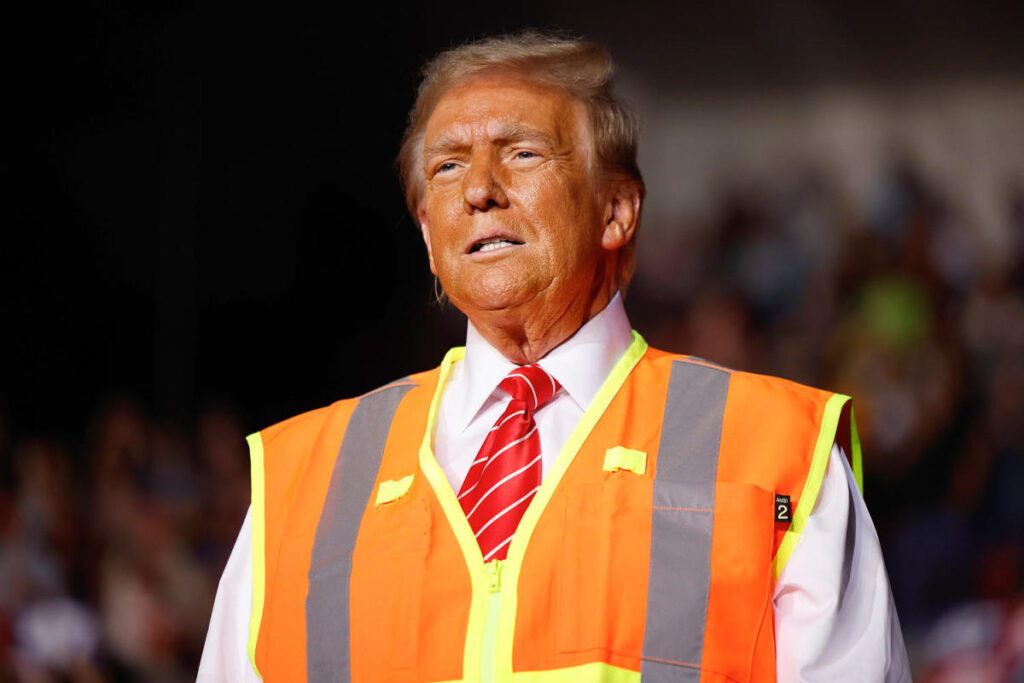During a rally in Green Bay, Wisconsin, former President Donald Trump made a controversial statement regarding women’s rights, asserting that he would “protect” women regardless of their opinions on the matter. He recounted that his advisors suggested he avoid this narrative, but he insisted on continuing with it, declaring, “I’m going to protect them whether the women like it or not.” Trump’s remarks were immediately seized upon by Vice President Kamala Harris and her campaign, which emphasized the implications of his words regarding bodily autonomy. Harris criticized Trump’s position, suggesting that he believes he should make decisions about women’s bodies without their consent.
Harris and her campaign spokesperson Sarafina Chitika quickly responded to Trump’s comments on social media platform X, highlighting the problematic nature of his statements. They argued that Trump exemplifies a paternalistic approach toward women’s rights, where he assumes that he knows better than the women of America. This interaction has sparked wider discussions about reproductive rights, particularly in the wake of the Supreme Court’s decision to overturn Roe v. Wade. Harris has made reproductive rights a central theme of her campaign, advocating for legislative measures to reinstate protections previously established by Roe v. Wade.
In retaliation, a spokesperson for the Trump campaign, Karoline Leavitt, defended Trump’s position while criticizing Harris’s record as Vice President. Leavitt contended that, while Harris is the first woman to hold the position, her policies have negatively impacted women both financially and in terms of safety. She emphasized that Trump would focus on securing borders, removing violent criminals, and building a better economy, which she argued would positively affect women and families. The Trump campaign aims to reposition itself to appeal more strongly to female voters, recognizing the shifts in voter sentiment since Trump left office.
The dynamics of the race are further complicated by polls indicating a significant gender gap in voter preferences. An NBC News poll revealed that women back Harris by a notable margin, while men show support for Trump. This data suggests a polarization in gender-based voting patterns and emphasizes the importance of addressing issues that resonate with these demographics. Trump’s efforts to attract more female voters may be particularly critical given the upcoming election, as both campaigns are increasingly focusing on key issues that matter to their respective bases.
Abortion has emerged as a pivotal concern for voters, with many indicating it as their primary motivating issue in the upcoming election. The NBC News poll reported that a considerable percentage of voters classified abortion as a critical issue, enough to dictate their voting decisions. This presents a challenge for Trump, who has previously taken credit for the effective reversal of Roe v. Wade and the decentralization of abortion issues to the states. His current stance—which includes not advocating for a federal abortion ban—highlights the complexities of navigating public sentiment while attempting to reclaim female support in his campaign.
As the 2024 election looms, the rhetoric surrounding women’s rights, bodily autonomy, and economic safety continues to escalate. With Harris championing her agenda on reproductive rights and highlighting the implications of Trump’s statements, both candidates are vying for the support of women voters amidst a charged political environment. The focus on personal agency and economic stability will likely remain central themes as both campaigns unfold, creating a battleground defined not only by traditional political issues but also by gender and rights discourse.

